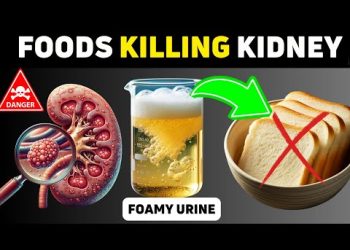Understanding the Prostate and Its Enlargement
The prostate is a vital gland located beneath the bladder, wrapping around the urethra in males. It typically holds the size of a walnut but can enlarge with age, leading to urinary flow interference that often disrupts sleep. This enlargement, if left unchecked, can evolve into cancer, a condition known as benign prostatic hyperplasia (BPH).
The Hormonal Connection
Enlargement of the prostate involves certain hormones, primarily testosterone. This anabolic hormone, essential for muscle growth, converts into a more potent form known as DHT (dihydrotestosterone) with the help of a specific enzyme. Elevated levels of DHT are implicated in the enlargement of the prostate.
Age and Hormonal Changes
Interestingly, as men age, levels of testosterone and DHT generally decrease. Paradoxically, prostate enlargement occurs more frequently among aging men, shedding light on increased enzyme activity that boosts DHT’s influence on the prostate over time.
Pharmaceutical Solutions and Side Effects
The leading pharmaceutical solutions target enzyme inhibition to curb DHT production, thereby reducing prostate enlargement by approximately 23%. Despite their effectiveness, these medications often come with undesirable side effects such as decreased libido, elevated prostate cancer risk, and other severe psychological and physiological effects.
Natural Solutions: Lycopene
Fortunately, nature offers a solution in the form of lycopene, a powerful carotenoid compound. Studies demonstrate that lycopene can reduce the risk of prostate enlargement by 21% while also combating cancer. Its potent antioxidant properties further enhance its health benefits.
Sources of Lycopene
Lycopene is abundant in foods like watermelon, carrots, and grapefruit. However, tomatoes are an exceptional source, especially when processed into sauces or pastes, enhancing lycopene’s bioavailability through cooking.
Optimal Lycopene Absorption Tips
For optimum absorption, lycopene should be consumed with fats; adding olive oil when cooking tomatoes aids in extracting more lycopene. Incorporating tomato-based dishes in your diet twice a week could significantly benefit prostate health.
Other Nutrients for Prostate Health
Besides lycopene, zinc is crucial for prostate health. Another beneficial compound is retinol. Together, they contribute to a robust plan for maintaining and improving prostate function and health.
A Dietary Caution: Avoid Dairy
A notable dietary precaution involves reducing or eliminating milk consumption. Dairy products contain growth hormones that may exacerbate prostate enlargement, leading to urination difficulties among older men. Therefore, avoiding dairy can also support prostate health.
Further Steps in Prostate Health
While incorporating beneficial foods, it is equally essential to identify and avoid dietary and lifestyle habits that can contribute to prostate issues. Exploring more about what foods and practices to avoid would further empower your journey toward prostate health.











